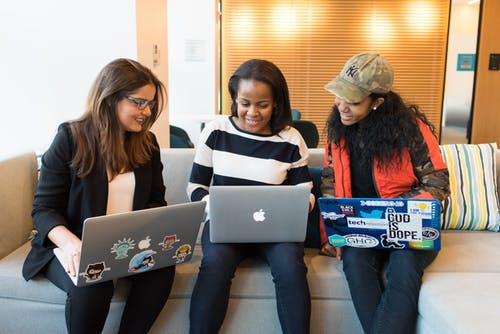6 of the most effective study techniques

Make yourself a revision wizard with these simple but effective tips
Revision isn’t a natural talent; it’s a skill. And like all skills it takes plenty of practice to master. You’ve had months of classes, endless essay and assignments, and now exam season is finally approaching, and you don’t know how to begin to retain all the facts you’ve been burdened with since September. But fear not, because learning how to revise more effectively is not as difficult as you might think. By breaking it down and making it suit your learning habits, you can become the master of facts, and make exam season your season. Read below to find out how.
Decide what kind of learner you are
No two students absorb information in the same way. Some are visual learners, who like brightly coloured spider diagrams, post-it notes of facts, and copying information from their books. Others learn through listening, such as by discussing topics with friends, watching YouTube clips of lectures, or hearing themselves teach a topic to family or friends. Test out different methods to find ones that work for you, and then adjust your revision sessions accordingly.
On a similar note, work out when you learn best. Some like to study early in the morning, before the afternoon crash, while others like to work up to it and wake themselves up a bit first. Knowing what time of day you’re able to concentrate best at will help you draw up an effective revision timetable.
Begin early
Last minute cram sessions just aren’t effective, as there’s only so much information your brain can take on board in one sitting. Starting your revision early will give you plenty of time to prepare, and make certain facts and quotes come to you as easily as song lyrics. It will also make your revision more leisurely, allowing you to take regular scheduled breaks so you don’t burn yourself out.
Create a study oasis
Some people find they work best in their bedroom, others the library, others a coffee shop. Again, try out the different options and adapt your studies accordingly. Create a little nest for yourself, with healthy snacks, water, and no distractions (put that phone AWAY!).
When it comes to noise, again, everyone is different. Some people love music or the telly on in the background; others can only concentrate in pin-drop silence. One popular option is to have instrumental music playing quietly in the background. Classical music and film scores can both motivate and focus you during revision.
Be strict
No matter what you do, revision is never going to be the most entertaining way to spend your time. There are other things you would rather be doing, but you have to be firm with yourself. This needs to be done, so put the phone away, be sure you have everything you need before you’ve started, and stick religiously to your revision timetable.
Practise!
Like we said, revision and exam technique are skills that require practice. Look up past papers online, or ask your teacher to come up with some questions, and then practise getting all the relevant information down on paper in the allotted time limit. By the time the exam comes around you’ll be a question answering machine.

Summer school
Sometimes you really need to immerse yourself in a subject to get to grips with it, and there is no more helpful experience than spending a couple of weeks at a summer school. Immerse Education summer school in Cambridge offers a range of different courses, all taught by highly-qualified tutors from leading universities. You’ll learn all the facts, develop your essay writing and exam techniques, and put your knowledge to practical use. You’ll also be surrounded by like-minded students from across the world. And the location of Immerse Education summer school, Cambridge University, makes for a perfect study environment.




